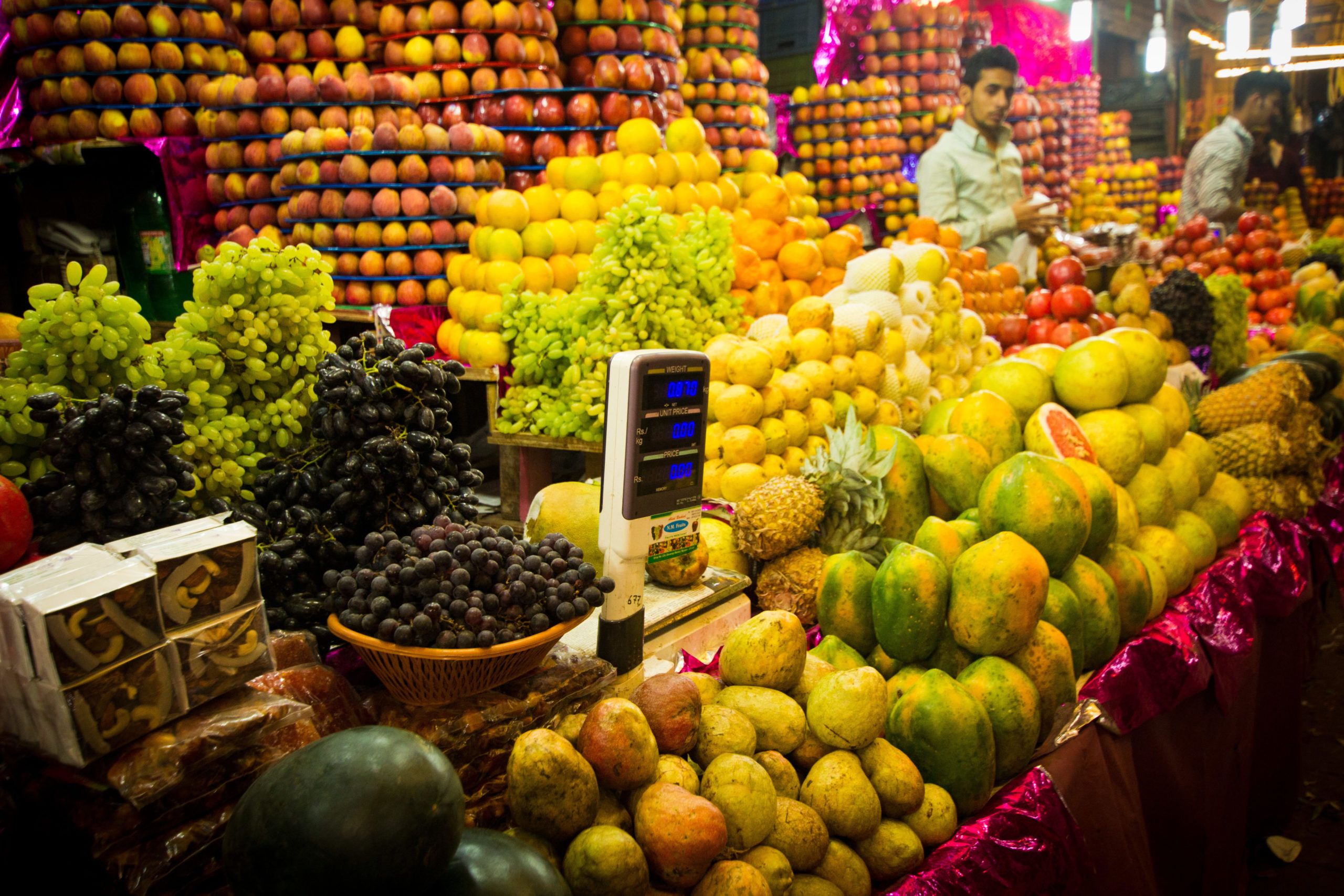An Indian startup trend that experts have foretold for a while is coming to fruition in a big way.
As India grows its horticultural capacity in reaction to the government’s National Horticulture Mission, which launched in 2005 to enable the creation of the necessary infrastructure for the industry to thrive, startups are rushing to add technology and structure to a centuries-old, largely informal supply chain.
Fruit and vegetable farms in India exceeded 300 million tonnes for the last fiscal year in India, according to the latest estimates from Ministry of Agriculture. “This is the first time in Indian history that horticulture production crossed the 300 million tonnes mark,” wrote Hemendra Mathur, agribusiness investment lead and venture partner at Bharat Innovations Fund, a new $150 million early-stage fund with a focus on agtech, cleantech, health-tech and enterprise-tech ventures, in AgFunderNews last month.
Mathur says that the simultaneous increase in production and the development of agrifood tech entrepreneurship ecosystem, which began around 2013, is pure coincidence.
But it now looks like many Indian entrepreneurs are reacting to this horticulture boom in similar ways — at least nine startups have opened up shop with online marketplaces for buying and selling produce in the last two years.
These produce marketplaces seek to remove multiple layers of middlemen between the farm and the end-customer, remove opacity and price variability from the produce market, streamline payment, and improve traceability for retailers and consumers, mostly using mobile app-based platforms. There are generally about five to seven intermediaries between the farmer and the consumer in the Indian market, according to Mathur. But despite this number of players, cold storage is often centralized and limited, suggesting that both streamlining and decentralization are needed.
The List Grows
Agribusiness marketplaces are booming all over the world, with some focused on simplifying the sale of agricultural supplies and inputs, others streamlining the sale of agricultural products to end users, and some doing both. The category had grown 2,488% year over year at the end of H1-2017 raising $301 million, according to AgFunder data, making it the fastest-growing category in agrifood tech. After the deals of summer and fall, India should make up a sizeable percentage of the deal count for this category by the year’s end.
Most of India’s new agribusiness marketplaces focus on a single urban area, sourcing from the outlying farms and distributing in the cities. And the rounds these companies are raising, especially for the Indian market where rounds tend to be smaller than US or European rounds, reflect investor excitement.
FarmLink is the most recent to raise funding, announcing a $3 million seed round from Pioneering Ventures last week.
The best-funded is NinjaCart, which raised a $5.75 million Series B round in March 2017 from Qualcomm Ventures along with M&S Partners, and Accel Partners, all follow-on investors from the company’s 2016 Series A round, bringing the company’s total funding to $8.75 million. Ninjacart sources produce from farms around Bengaluru and sells mainly to hotels and supermarkets. The company originally intended to distribute direct to consumers, but strictly sells to wholesale customers in its current iteration.
Also based in Bengaluru, Farm Taaza raised an $8 million Series A round this year from two Indian investment firms along with Hong Kong-based VC Epsilon Venture Partners. The company, which also sells to wholesale clients, claims it will be near breakeven in May of 2018.
WayCool, based in Chennai, raised a $2.7 million Seed round from India VC Aspada in March 2017, and also serves surpermarket clients under the brand name SunnyBee.
CroFarm raised $783,000 in an August seed round from Colorado-based venture firm Factor(e) along with the managing director of Google India, Rajan Anandan in August. The firm operates in three cities, Mumbai, Bengaluru, and New Delhi and sell to retailers.
And these are just the startups with public funding information. Wholesalers Krishihub, Sabziwala, which serves smaller stores like street vendors and general stores, and Dehaat, which offers agronomy services in addition to buying produce, and farm to consumer e-commerce play MeraKisan, are more India agribusiness marketplaces that have opened in the last three years.
Why So Many Lookalikes?
Kahn says that this excitement may be a transfer of energy from the consumer delivery space, which has significantly cooled in recent months after a string of startup shutdowns. There were four food e-commerce casualties by the end of 2015 in India and two in 2016, including the countries third largest grocery delivery service Peppertap.
“Looking at the wreckage of e-commerce has caused [entrepreneurs] to look where they wouldn’t have looked before,” says Kahn.
He says that agribusiness marketplaces resemble food e-commerce just enough for generalist VCs to feel comfortable with the category while being different enough to inspire confidence that they will be excluded from the delivery fallout.
All of these companies make claims around a streamlined process, real-time information, and payment for farmers, standardized pricing for all parties and some level of tracking and traceability. Surely they will all compete on the user experience at both ends along with whether they can deliver on promises of reliability and transparency?
But Kahn says that the company that will end up pulling ahead of the pack will likely offer services beyond connecting farmers and buyers. Dehaat, which counts offtake of produce as just one of three services, looks to be doing just that; it also offers agricultural input sourcing and services and crop advisory services to farmers using the Dehaat app.
Pablo Erat, partner at Pioneering Ventures, which has incubated FarmLink since 2014, said that FarmLink is headed in this direction as well.
“FarmLink provides all-around agronomy support and extension services to farmers to build secure and stable relationships while ensuring regular secured income. The ultimate aim is to help farmers build viable businesses and become successful agricultural entrepreneurs and thus impact the entire rural eco-system,” said Erat.
FarmLink also offers value-added processing like chopping of vegetables to offer more options to retailers.
Is Consolidation on the Cards?
With a country the size of India, is this many lookalikes a problem? Generally, the consensus answer is no, for now.
“India is soon going to be a ‘one million tonne per day consumption market’ for horticulture produce. If you combine the volumes of all horti-tech start-ups, it is well below 500 tonnes per day so not even 0.1% of the market opportunity. I believe many such startups can co-exist and benefit from collaborating with each other. It is not a winner-takes-all market,” says Mathur.
Kahn agrees that the sheer size of India gives these companies enough room to grow, but eventually, they will need to branch out and that will likely necessitate consolidation.
“India is enormous and most of these players are just focused on the farms that surround a given urban area. My sense is these things will start out regional and they’ll try to go national and they’ll either go broke or these players will aggregate and merge with each other.”
Furthermore, it should be noted that expanding beyond starting cities was the downfall of several players in food e-commerce.
In the meantime, Kahn is waiting to see more differentiation among the many produce distribution startups before he makes an investment in any of them.
“The Omnivore view is that we’re standing on the edge of the cafeteria watching the other kids dance right now. We want to see more traction, ” says Kahn.





